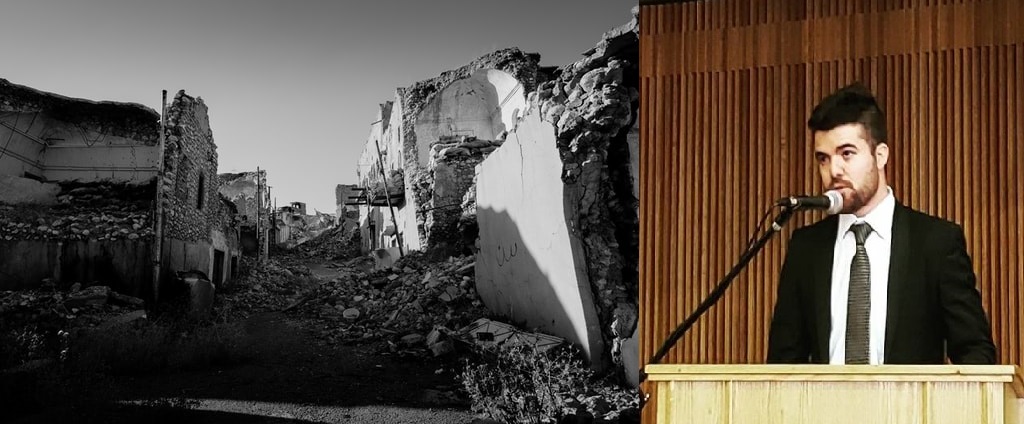Washington Kurdish Institute
September 22, 2020
The Washington Kurdish Institute hosted Dawood Saleh Ahmed, a prominent Yazidi activist and genocide survivor who has contributed to the Jerusalem Post, author of the book Walking Alone, and president of the non-profit Operation Yazidi organization.
Personal Origins
“I am originally from Dugure [village], I was raised there, then I moved to Bare village two or three years before the genocide happened. Like many other families in Sinjar, my family and I spent years working very hard to build up our home in Bara village. But then when ISIS came, like everybody else, we had to flee, and we had a few options. Either we could go to Kurdistan, or get stuck on Mount Sinjar, or go to Syria. So we just decided to take our chances and go to Kurdistan, and we eventually made it there. First, we were close to Duhok, and then we moved close to Zakho. Eventually, we settled in one of the IDP camps there. I lived with my family there for two years, from 2014 to 2016, and then I got the opportunity to come to the US by applying for asylum.”
Addressing Misconceptions of the Middle East
“ I agree with you that the Middle East has been this kind of black spot that the world is not very aware about. But I want to say that there is so much history and culture there. Most of the world is aware that the history of civilization begins in the Middle East, and yet there are so many indigenous cultures and people that are being persecuted over and over, including Yazidis, Christians, and many other minorities. What is most important is that there are human beings over there, and they should not be humiliated. These minorities live in majority Muslim countries and their only wish is to survive and be in peace, while others are trying to commit different genocides against them. And simple people like my mother spend their whole lives trying to raise their children to be educated, to go to school, and to have a future, but then these radical groups who hate for no reason come and try to kill them.”
The situation of the Yazidis in Turkish-occupied Syria
“I think that yes, the Yazidis in Syria have been persecuted in a way that is not so different from the Yazidis in Sinjar. We have gotten reports about Yazidi shrines being destroyed, and reports about many Yazidis that have gone missing from different areas of Syria, and these are areas held by those (Turkish-backed) militias. What is going on is the Yazidis are being persecuted everywhere. And it’s very sad that an indigenous minority who is amongst the original people of Mesopotamia, with a history going back 6,000 years are now being persecuted by a group of militias and the world is just ignoring what is happening.”
On the Current Political Situation in Sinjar
“I think there are several reasons there are so many militias now present in Sinjar. I don’t want to go into too political a side of it, but as the genocide happened, and the Iraqi forces fled, there were militias that were made up of Yazidi civilians who volunteered to protect the Yazidis stuck on Mount Sinjar. And those groups, they started organizing, and after the liberation of Sinjar, there are now several different groups in Sinjar. In one way it’s good, because if another group like ISIS came again many different militias would fight them, however, there are also, too many groups that are also in conflict with each other, which is not in favor of the Yazidi people who want to come back and lead a normal life. I, as a Yazidi would like all these groups to reach a settlement that would lead to the Yazidis having their own organized and formal group of Yazidis who themselves could protect the Yazidis, in collaboration with the Iraqis, Kurdistan, and the International Community.”
The Internal Divisions of Yazidis
“I don’t think it is that different from the situation of Kurds right now. The Yazidis don’t have their own formal region or their own army. They don’t even have any strong political agendas in Iraq or in Kurdistan. So, the Yazidis after the genocide became scattered all over. Different groups from different parties started to form but in many ways the Yazidis are still so divided, which is not in their favor at all. Last year, all the small Yazidis political parties decided to come together and stand as one party in the Iraqi elections, however, that fell apart quickly, and Yazidis are still divided. They need some kind of collaboration.”

